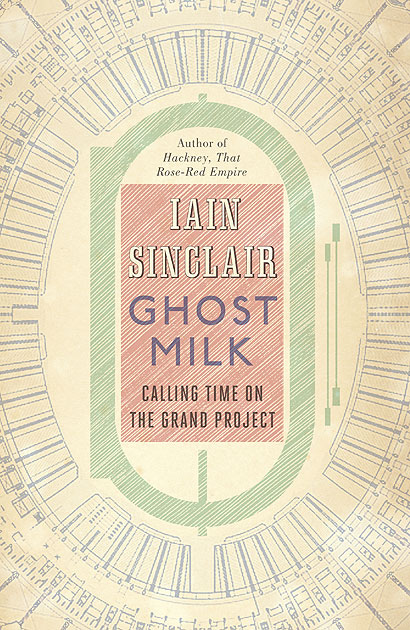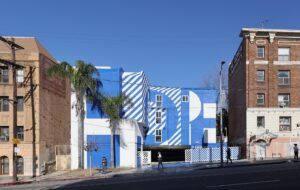|
|
||
|
For a good while now, Iain Sinclair has come across as a London Olympics Nimby. In Ghost Milk he argues that, if the event is going to go ahead at all, then it should be like the 1951 Festival of Britain — for which he stains the page with a few teardrops of nostalgia on behalf of his eight-year-old self; it should be in the heart of London, not on its toxic fringes. On whose behalf is he bemoaning the loss of the area in Stratford to the Olympics? Dog walkers, cyclists, photographers, some allotment holders and the occasional psychogeographer? It’s not an especially huge constituency. But it’s with the following decontextualised statement that his animus becomes simply ludicrous: “And I repeat this mantra: Berlin 36, Mexico City 68, Munich 72. Count the cost. Heap up the dead.” It is almost as if he wants something to go seriously wrong. Later he remarks that the Olympics Games are war by other means. The looseness of Sinclair’s definition of grand projects undermines his argument. These encompass, for example, the Midland Hotel in Morecambe, the Earth Centre in Doncaster, Manchester’s Urbis, the Acropolis Museum and even San Quentin prison. He admits that Will Alsop’s M62 SuperCity was a non-starter, but that doesn’t stop him complaining about it all the way by bus from Liverpool to Hull on his Hackney Freedom Pass. There is no consideration of the numerous grand projects in the cities he visits that have worked out quite well – his meanderings and musings merely reveal a confirmation bias. Sinclair unearths some unlikely little nuggets, such as American actress Jayne Mansfield opening the Chiswick flyover in 1959. But he can’t help but connect this to his mentor JG Ballard, who crashed his car there more than a decade later. I found the threading through of Ballard problematic. On the surface it would appear that he is memorialising the late writer, but actually Ballard’s life is evoked more in relation to Sinclair’s own mythology. For all the brickbats that Sinclair aims at the 2012 Olympics and its legacy, I rather think it’s his own legacy that he’s more interested in. There’s even a visit to Sinclair’s own archive (he sold it to the Harry Ransom Center for humanities research in Texas). One senses that there is still a frustrated fiction writer inside, unable to get out. Despite his huge literary cachet, he still ends up complaining about the amount of money he’s owed for his journalism (£12,000, in case you’re wondering) and how he hasn’t got the time to chase it up. What he rather high-mindedly calls “a piece for the Audi Channel” is in reality a 20-minute advert he and Chris Petit produced for a £60,000 sports car. Sinclair has a good eye and ear, and a vast descriptive talent (the London 2012 logo is a “bubblegum swastika”, Anish Kapoor’s Olympic sculpture is the Angel of the North’s “twisted caliper”), but his free-association prose-poetry (O2 becomes “Oz” and the A580 becomes “Asbo”) and his world-weariness can become tiresome. Even London’s Austerity Olympics of 1948 are, in the long run, merely “tramping the ground flat for Westfield”. We can all get worked up about the hucksters and boosters despoiling east London’s frontier territory, but the idea of circuses to go with our bread endures and means something. What Sinclair really hates, of course, is that most people are on the side of the Duke of Edinburgh, who saw – from his helicopter vantage over the Lea Valley – “a pretty average mess”. For Sinclair, the smoking gun of the Olympics folly is that “Stratford City will be the largest retail-led mixed regeneration in the UK. In other words: a shopping mall.” Ghost Milk would have been so much better as a concentrated attack in the way Sorry Meniscus was on the Dome – a grenade lobbed into New Labour and its millennial hubris. Instead, it’s a baggy mishmash of recycled journalism held together by an unsupported thesis. Ghost Milk: Calling Time on the Grand Project. Iain Sinclair. Hamish Hamilton, £20
|
Image Ghost Milk
Words Chris Hall |
|
|
||

















